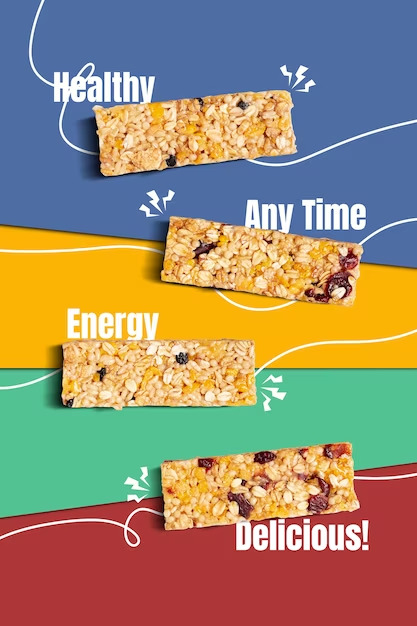Can I Replace My Meal With Protein Bar: In our swiftly evolving world, the ongoing pursuit of accessible and nourishing meal alternatives is a perpetual challenge. For many, the protein bar has emerged as a promising solution, offering a speedy and seemingly wholesome substitute for traditional meals. However, the central question persists: Can a protein bar genuinely be a replacement for a meal? This examination delves into the intricacies of protein bars as meal replacements, analyzing the benefits of protein bars and drawbacks to present a nuanced perspective.
The Appeal of Protein Bars
Protein bars have garnered considerable popularity due to their convenience, extended shelf life, and the commitment to delivering a protein-rich impact in a condensed form. Advertised as a convenient option for individuals with hectic schedules, protein bars have become a staple in gym bags, office drawers, and backpacks alike. Their allure lies in providing a swift, hassle-free meal alternative without compromising on nutritional value.
The Protein Dilemma
The primary allure of protein bars is, unsurprisingly, their protein content. Proteins are crucial for bodily growth, repair, and overall functionality. Protein bars frequently showcase an impressive protein profile, incorporating various sources such as whey, soy, or plant-based proteins. This makes them especially enticing for those aiming to augment their protein intake without the inconvenience of preparing a protein-rich meal.
The Element of Convenience
In a landscape where time is a precious asset, the undeniable convenience presented by protein bars is apparent. Whether addressing the needs of a busy professional, a fitness enthusiast, or an individual contending with meal preparation, the grab-and-go characteristic of protein bars is revolutionary. What makes the consumption of protein bars easier is that they are very appealing, which tempts you to go for it rather than settle for a traditional meal. With the availability of various flavors and various options in the market like peanut butter protein bar, chocolate protein bar, bars that have nuts and oatmeal protein bars, you get to select from your preferred and favorite flavors that align with taste preferences.
The Nutritional Landscape
While protein bars excel in the protein realm, their overall nutritional makeup can be a double-edged sword. Numerous commercial protein bars, notwithstanding their protein content, may be laden with sugars, artificial additives, and unhealthy fats. Scrutinizing the nutritional label becomes imperative in discerning whether a protein bar serves as a wholesome meal replacement or merely masquerades as a glorified candy bar. Moreover, the absence of essential vitamins and minerals found in whole foods may create nutritional voids when solely relying on protein bars for sustenance.
The Satiety Factor
A crucial aspect of any meal replacement is its ability to evoke a sense of fullness and contentment. While protein bars offer a rapid energy boost, they might not induce the same feeling of satisfaction as a well-rounded meal. The act of chewing and the sensory experience of consuming a complete meal contribute significantly to the sensation of fullness, an aspect that a protein bar may not entirely replicate.
The Peril/ Drawbacks of Overconsumption
It is easy to succumb to the idea of considering protein bars as a universal solution for nutritional requirements. However, an excessive reliance on these convenient snacks can lead to an imbalance in nutrient intake. Whole foods provide a spectrum of nutrients that synergize to promote optimal health. Relying exclusively on protein bars may result in an insufficient intake of crucial vitamins, minerals, and fiber, essential components for overall well-being.
The Significance of Whole Foods
Despite the attractiveness of protein bars, experts in nutrition and health emphasize the indispensable function of actual, unprocessed foods in upholding a well-rounded diet. Whole foods provide a range of nutrients, fiber, and antioxidants that contribute comprehensively to overall well-being. While protein bars can function as a handy addition, they must not replace the varied and nutrient-dense meals that constitute the foundation of a nutritious diet.
Conclusion
In the pursuit of efficiency and convenience, the idea of replacing meals with protein bars has gained momentum. While these compact snacks undeniably provide a rapid protein fix and a convenient option for those with hectic lifestyles, their viability as complete meal replacements necessitates cautious consideration. The key lies in moderation and a discerning approach to nutrition. Protein bars can be a valuable addition to a comprehensive diet, offering a convenient protein source when needed. However, they should not serve as the exclusive foundation for nutritional intake. Striking a balance between convenience and nutritional completeness ensures that protein bars complement, rather than supplant, the diverse array of nutrients derived from whole foods.










